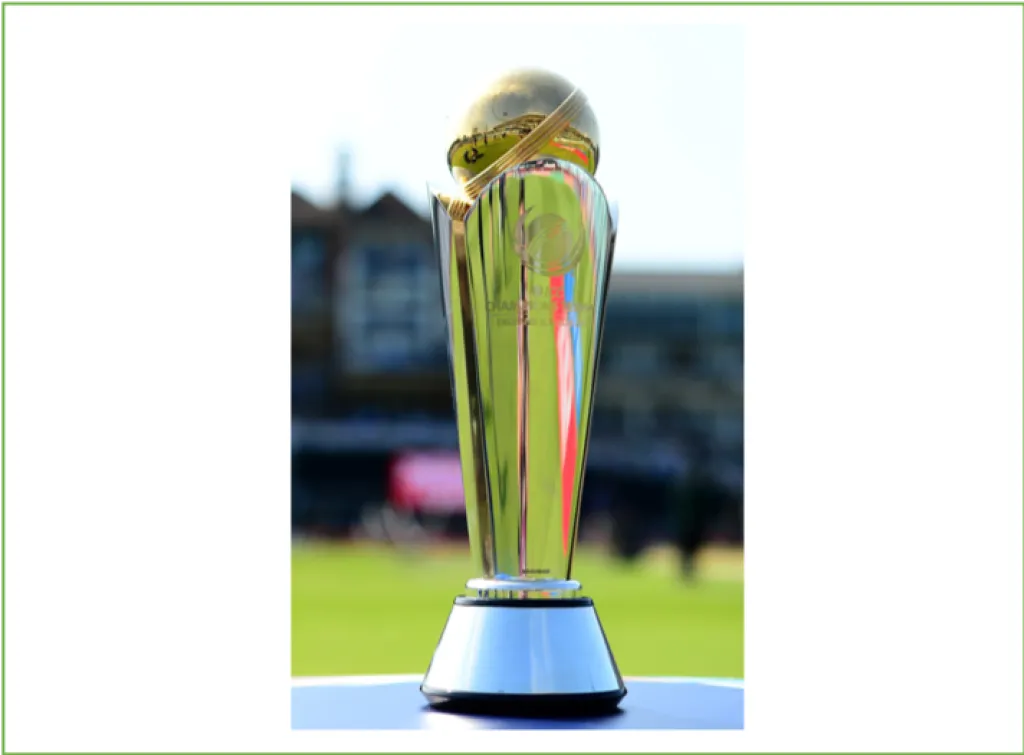The International Cricket Council has announced a suspension of the ICC Champions Trophy promotional tour in Pakistan-occupied Kashmir, following strong opposition from the Board of Control for Cricket in India. This decision comes after the Pakistan Cricket Board's intent to include PoK in the trophy tour faced criticism from the BCCI, demonstrating the ongoing political sensitivities surrounding cricket relations between India and Pakistan.
The Champions Trophy, which last took place in 2017, now finds itself in a precarious situation. The BCCI has previously declined to send its national team to Pakistan due to security concerns and historical tensions. Compounding these difficulties is the PCB's rejection of a proposed 'Hybrid Model' which would have permitted India to play its matches in Dubai, effectively sidelining discussions about joint hosting arrangements.
The scheduling of the tournament is currently in limbo, exacerbated by this latest development. It underscores the complexities of organizing international sporting events within regions marked by dispute and contention.
In a communication on Friday, BCCI Secretary Jay Shah reached out to senior ICC officials to express his discontent regarding the PCB's announcement. He articulated the view that conducting the trophy tour in Pakistan-occupied Kashmir is unacceptable. This sentiment emphasizes the delicate nature of diplomatic cricket relations, where actions by one board can invoke significant reactions from another, especially in geopolitically charged scenarios.
The BCCI Secretary condemned the decision of the PCB to organize a trophy tour that included cities in PoK, urging the ICC to intervene. Reports indicate that he reinforced the importance of not allowing the trophy to travel to disputed areas and insisted on a unified approach among stakeholders regarding such significant events.
The term 'Trophy Tour' refers to an initiative driven by the ICC to promote upcoming tournaments, which involves showcasing the championship trophy across various cities in the host nation. This promotional strategy aims to enhance fan engagement and increase visibility for the sport. However, the PCB’s recent announcement, made public through its official social media channels, has brought to light the underlying tensions that can complicate international cricketing endeavors.
The PCB's declaration hinted at a plan to exhibit the Champions Trophy in cities such as Skardu, Murree, Hunza, and Muzaffarabad, which are all situated within the disputed territory. This announcement raised eyebrows not only for its political implications but also for potentially breaching norms of consensus among governing boards.
When approached for a comment, an ICC board member acknowledged ongoing discussions regarding the trophy tour but expressed uncertainty about whether the PCB had communicated its plans to other stakeholders effectively. The member noted that conducting a promotional tour in disputed areas was not a prudent decision and strongly implied that ICC would likely prevent the PCB from proceeding with such plans.
The situation highlights the intricate interplay between sports and politics in cricket, particularly between India and Pakistan. As both nations grapple with historical tensions, decisions relating to cricket can carry social and political weight far beyond the matches themselves.
Understanding the nuances within the cricketing framework requires consideration of both sporting and diplomatic factors, especially in a divided region. As fans await clarity on the Champions Trophy’s fate, it remains essential for cricketing authorities to navigate these waters delicately to uphold the integrity and spirit of the game amid complex geopolitical realities.
The ramifications of this ongoing situation are significant, not only for the governing bodies involved but also for cricket fans who look forward to witnessing the tournament. As of now, the ICC's forthcoming decisions and how it intends to manage relations with both the BCCI and PCB will pave the way for future tournaments and the broader landscape of international cricket.
In conclusion, with the current impasse over the Champions Trophy, it becomes evident that organizational planning for such events must consider the sociopolitical contexts in which they are embedded. The interdependence of sports diplomacy and cricket is likely to endure, underscoring the need for ongoing dialogue and collaboration among cricketing nations. The cricketing world watches closely as events unfold, hopeful for a resolution that facilitates an uninterrupted tournament and strengthens the bonds of this beloved sport.

